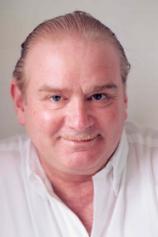Alfred Hitchcock: A Brief Life
Review
Alfred Hitchcock: A Brief Life
Alfred Hitchcock is still arguably the most well known and famous director in the world, almost a half century following his death and 50 years after the release of his last movie. Actually, he is doing pretty well, better than many active creative types. Sight and Sound, a British film magazine, releases an annual poll of the top 100 movies of all time every decade. Since 1962, the winner every year as greatest movie ever made was Orson Welles’ Citizen Kane. Good choice.
Until 2012 when Vertigo by Hitchcock was named the greatest movie.
Many great books have been written about Hitchcock. In his new short, excellent biography, ALFRED HITCHCOCK: A Brief Life, Peter Ackroyd, who has written popular biographies of legends like Charlie Chaplin, Charles Dickens and T.S. Eliot, covers Hitchcock’s entire career of 57 movies in 54 years. Most importantly, he shines a light on how the man, despite his sizable flaws and neurosis, created not only great art but art that was transcendent.
As anybody with even a passing knowledge of Hitch’s vast oeuvre knows, the director dealt with dark subjects, murder most vile and all sorts of sexual perversions. His life informed his work. Ann Todd, who was in 1947’s The Paradine Case, calls him “…a very complex man --- an overgrown schoolboy, really, who never grew up and lived in his own special fantasy world. He had a schoolboy’s obsession with sex that went on and on in a very peculiar way…. I think he was really a very sad person.”
"Ackroyd does a great job of summarizing Hitchcock’s career. Anybody with a passing interest in his movies or movie history in general will enjoy this book."
Dismayed by his obesity and what would become his famous round shape to a generation raised in the 1950s by his famous television show, “Alfred Hitchcock Presents,” the roots of Alfred Hitchcock the artist and auteur came early. His father owned a fish shop, and he was raised in strict Jesuit Catholicism, complete with debilitating guilt. Ackroyd writes, “It is clear enough, however, that fear fell upon him in early life…. Yet something already marked him out as a shuttering, shivering human being, afraid of judgement and punishment…. Hence the fear of the world that became his familiar characteristic…. He had a horror of life that could only be assuaged by his imagination. And, essentially, he never changed. The fears and obsessions of his childhood remained with him until the end of his life.”
But what an artistic life! Hitch was lucky enough to come along at the birth of motion pictures. And he immersed himself in the new, powerful medium. After the First World War, he went to where the motion picture industry was flourishing --- not Hollywood, which was still a dusty desert town, but Berlin in the Weimar Republic. He worked with and learned from the great F.W. Murnau. Murnau taught him how the camera could be fluid and how a director could use the audience’s imagination, something Hitch did for his entire career to thrill and shock audiences.
As movies expanded technologically and began using sound, Hitch made the first talkie in England. He rose quickly to become the greatest British director in the 1930s, making still-classic films like The 39 Steps and The Lady Vanishes. The British period would be his first great period. Then David O. Selznick, looking for a follow-up hit to Gone with the Wind, brought Hitchcock --- the hot director still a young man of just 40 --- out to Hollywood, where he would spend the rest of his career and life, except for returning to England to make Frenzy in the 1970s.
In Hollywood in the 1950s, Hitch hit his golden age and soared to creative heights with a string of movies, such as Rear Window, North by Northwest, Vertigo, Psycho and The Birds. He was taking the audience places no director had ever ventured before. He was told that Psycho could never be filmed; the censors would never allow it. Studios refused to come up with the money to make it. So Hitch, his career at stake, had to come up with $800,000 himself, an investment that paid off in millions for him.
Ackroyd does a great job of summarizing Hitchcock’s career. Anybody with a passing interest in his movies or movie history in general will enjoy this book. But the reader will close it thinking of what Doris Day said. He once told her that “he was afraid to walk across the Paramount lot to the commissary because he was so afraid of people.” Hitchcock was, for whatever reason, a man surrounded by fear and darkness. Ackroyd writes, “The idea that civilisation is as thin as ice, beneath which lie depths and darkness, is one that stayed with him. The idea that the course of ordinary life is unexpected and full of threat…” But he did not let the darkness consume him, as it does so many others. He turned it into great art.
The art of Alfred Hitchcock will last for as long as humans watch movies. And you cannot do much better with a life.
Reviewed by Tom Callahan on November 4, 2016
Alfred Hitchcock: A Brief Life
- Publication Date: September 19, 2017
- Genres: Biography, Movies, Nonfiction, Performing Arts
- Paperback: 288 pages
- Publisher: Anchor
- ISBN-10: 0525434798
- ISBN-13: 9780525434795











